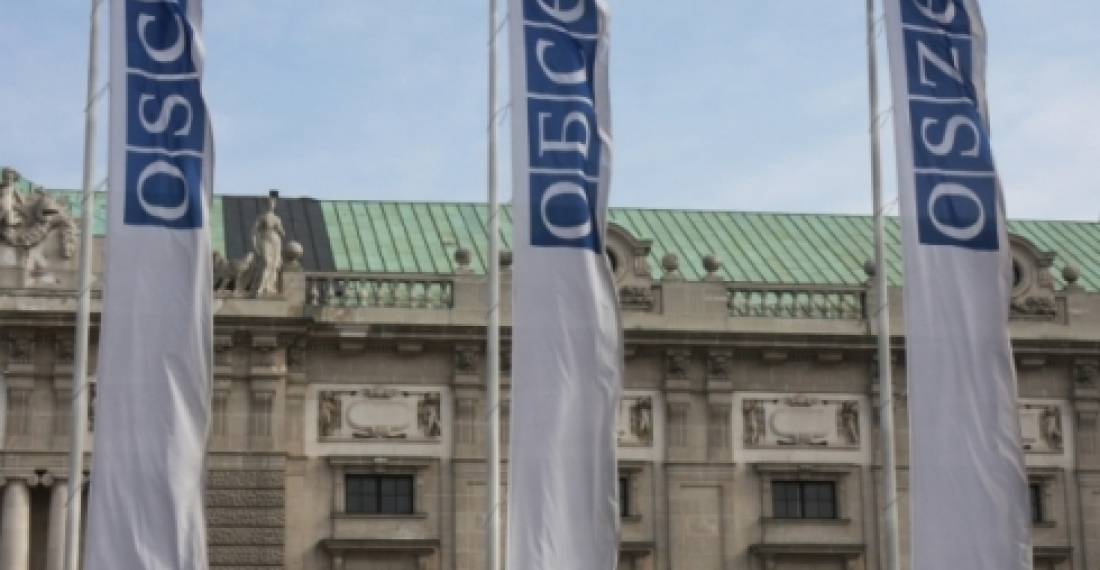The 22nd Ministerial Meeting of the Organisation for Security and Co-operation in Europe (OSCE) will take place in Belgrade on 3-4 December. Foreign Ministers of the 57 member states of the organisation will gather in the Serbian Capital at a time of considerable instability right across the OSCE area, and with the organisation trying to define its own role in the future of Europe's security. Whilst a number of key issues, such as Ukraine and the terrorist threat now facing the entire continent, will dominate the discussions other issues will also be intensively discussed on the sidelines of the meeting.
The Karabakh conflict and the tensions of the last year on the line of contact separating Armenian and Azerbaijani forces are expected to be discussed in meetings between the co-Chair of the Minsk process on Karabakh - diplomats representing France, Russia and the United States - and the foreign ministers of Armenia and Azerbaijan. It is not yet clear if the co-Chair will hold a joint meeting with the two ministers or if they will only see them seperately. There is still hope that a meeting involving the presidents of the two countries can be held before the end of the year, but if a joint meeting with the two foreign ministers fails to take place in Belgrade, a meeting between the two Presidents will look increasingly unlikely.
The OSCE Minsk Process failure to achieve a breakthrough in the negotiations has resulted in considerable frustration within the conflict affected communities and has opened the process to some criticism even within international fora. The matter got complicated earlier this month when the Political Affairs committee of the Parliamentary Assembly of the Council of Europe adopted a resolution that seemed to suggest a different articulation of the conflict and the peace process than had been widely accepted so far. (See story on commonspace on 5 November). This triggered an irritated response from some of the co-chair countries, although the tone was more measured in a formal statement released by the co-Chair on 12 November. In that statement the co-Chair said,
"In response to questions received by the Co-Chairs of the OSCE Minsk Group about the report and draft resolution currently under discussion in the Parliamentary Assembly of the Council of Europe (PACE), we take note of the attention paid by PACE to a Nagorno-Karabakh settlement. We share concerns, expressed in the resolution, regarding an increase of tensions along the border of Armenia and Azerbaijan and along the Line of Contact. We deeply regret the loss of lives, including civilians.
We agree that the conflict has lasted too long. The sides should undertake all measures necessary to expedite a peaceful settlement.
We are convinced that measures to reach a negotiated settlement should be based on mutual agreement between the sides as emphasized in the Joint Statements made by the Presidents of France, the Russian Federation, and the United States, and supported by the international community.
The Co-Chairs will continue to render assistance to the parties, taking into consideration our mandate, approved by the OSCE. According to the OSCE mandate, our task is to promote a peaceful resolution of the conflict and in particular to facilitate negotiations on a comprehensive settlement. We are neither judges nor advocates for particular positions.
There are proposals to create new negotiating formats and working groups on the settlement of the conflict. We believe that in the framework of the Minsk Group there is unique mediation experience. The Minsk Group format is accepted by the parties and has the full confidence of all OSCE participating States. Considering the sensitivity of the negotiations, attempts to change the format or create parallel mechanisms can disrupt the negotiation process and impede progress towards a settlement. At the same time, we are prepared to cooperate with all international organizations, which demonstrate an interest in finding a just and sustainable settlement to the conflict."
In Belgrade on 3-4 December the co-Chair countries will have as a minimum to show that the parties to the conflict remain engaged in negotiations, and preferably would do so by announcing the dates for a presidential meeting.
source; commonspace.eu with osce.org







